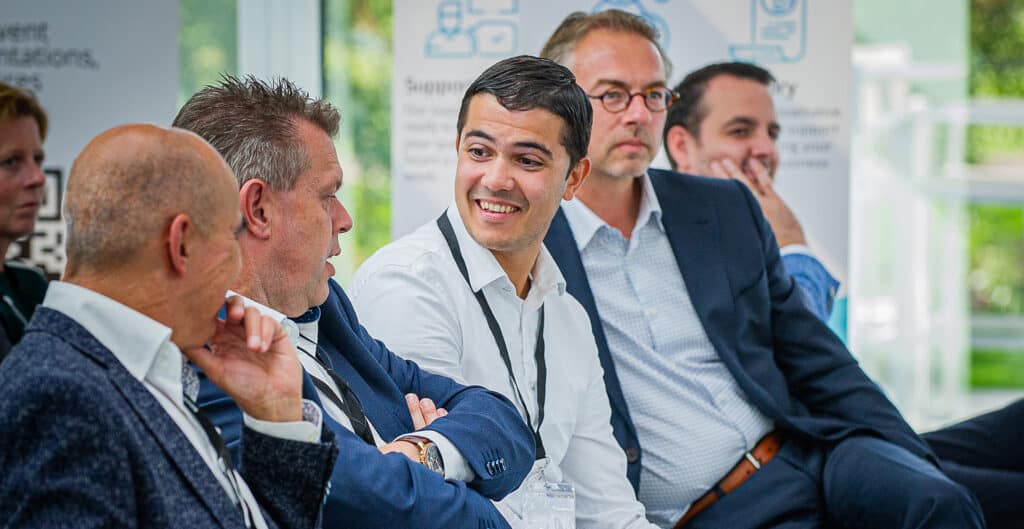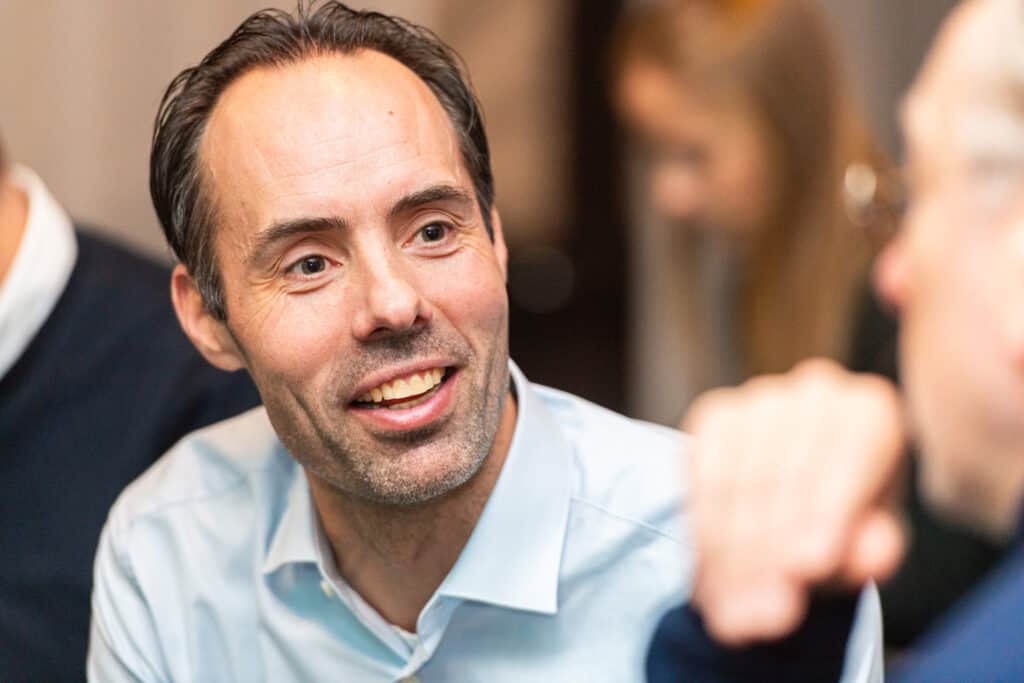Nick Leirs challenges the way of working. Because, as he says, ‘There is never only one way.’ As a Team Lead CoE Business Processes, he aims to simplify and standardize. This goes for your organization’s financial processes, as well as work experiences. With 13 years of know-how at Dynatos, Nick shares his expertise with clients and colleagues.
Paving the way to change
Fittingly, Nick is an avid hiker. In hiking, there usually are many routes to take to the same destination. However within organizations, ensuring all people and parties involved reach the same end goal simultaneously can be a challenge. Doing so calls for a collective understanding of the entire process. Nick explains the importance of understanding the ‘why’: ‘I want my clients to have complete awareness of what is happening in their organization. Because often, we see problems in a later phase of the process, while they originate a few steps earlier.’
In most organizations, we are chasing problems instead of solutions. Nick explains: ‘What happens is that people lose valuable time trying to solve problems which exist because of a specific mistake made in an entirely different phase or department.’ Fortunately, such mistakes are often easy to fix once they are spotted. ‘If one person changes the way they work, that saves someone else a lot of time and effort in a later stage. They can use that time to their, and the organization’s, advantage by putting it into the hard(er), more valuable work that needs to be done.’
Over the years, Nick has been seeing similar problems in different contexts. ‘With everchanging processes and technologies, the sore points remain the same. If we want to solve and improve our work, we need everyone to be on the same page in process optimization. The people carry the process.’
 Gaining support in taking a different route
Gaining support in taking a different route
Where do you begin in creating such awareness? According to Nick, it comes down to knowledge sharing. ‘To minimalize problems and save time, certain things need to be done differently. But people need to know why, in order to support the essential adjustments. If you don’t have support, your change will not be successful.’
Change management is also people management. A question Nick loves to ask is: ‘Why do you do it like that? According to which principle or rule of thumb?’ He explains: ‘People love routines. We always look for the way that suits us. When we find our own way of working, we have a hard time letting that go. The funny thing is, when asked about the background of their ways, people have two answers. First, they prefer this because it makes sense to me. It suits me. Second, someone taught them to do it in this manner.’
Know where you’re going
In doing constructive and sustainable change management, Nick focuses on simplifying and standardizing, with a specific goal in mind: ‘We want all activities to be clear in order to achieve the same end result, no matter who is working the steps.’
Nick and his team noticed an interesting phenomenon. ‘We communicate differently in international collaborations. Everyone has to make the effort to speak English so we all understand each other. This urges us to be clear in what we mean instead of assuming we are all on the same page from the start. When sharing the same native language, you’re bound to fall into detailed descriptions. Speaking English limits that, in a good way: we have to distinguish what we need and expect from one another clearly.’
Don’t be afraid to take a step back
In striving for simplicity, Nick wants the people around him to excel personally. ‘I want everyone, colleagues as well as clients, to deploy to their talents. That means coaching people not only in what they like to do but also where they excel. When someone makes a mistake, it’s crucial to reflect on that. Mistakes happen; we make space for them. But I do want to take some time to see how to prevent it from happening in the future. Asking and giving feedback is necessary for improvement.’
When Nick asks his team what he himself can do differently, there is one recurring factor: listening. ‘I like to think I already know the answer. I used to speak as quickly as I tried to think. Now, I aim to just let the conversation happen by taking a step back. By prioritizing listening over speaking. Because that is how things work: step by step, and the first step makes the second and third a mystery.’


